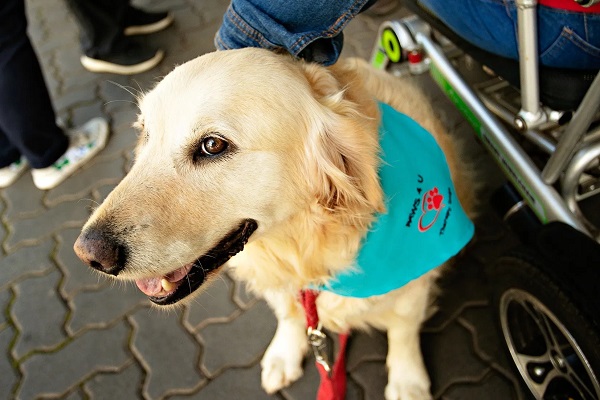Johannesburg, 28 September22: The global theme for this year’s World Rabies Day, which takes place on 28 September, is ‘Rabies: One Health, Zero Deaths.’ It’s an important theme, because it speaks to the fact that it is possible to eradicate human deaths that result from rabies-infected dog bites through a concerted vaccination effort, despite 59,0001 still dying from the completely preventable disease each year.
The Global Alliance for Rabies Control’s (GARC) goal is “Zero by 30,” which means zero deaths by 2030, and One Health speaks to this.
“The environment, human health, animal health and the human animal bond are all factors we need to consider when addressing rabies,” says Dr Tarryn Dent, Business Unit Lead: Companion Animals at Zoetis South Africa (Zoetis), a global animal health company. “Healthy pets impact human health, both mentally and physically. Companion animals have become increasingly important in households, and we know, since the pandemic, that they also promote good mental health and wellness.”
The challenge is that there are still diseases, such as rabies, that are resulting in thousands of human deaths each year – and yet the owners of companion animals can protect themselves and their families. World Rabies Day focuses on educating the public, and particularly pet owners, about this fact and encouraging vaccinations.
“The main problem with rabies is that by the time symptoms appear, it is a fatal disease for both humans and animals,” says Dent.
The result? According to GARC, 40%2 of rabies deaths each year are children. These children tend to live in rural communities across Africa and Asia and do not have access to medication, which can be prohibitively expensive for poor and rural households. Similarly, millions of dogs (and other animals) suffer and die from rabies.
Understanding rabies and the danger we face
Rabies is a serious viral illness that can affect any warm-blooded animal, including humans3. It’s endemic in South Africa, which means aside from feral domestic cats and dogs, many other species are carriers too, including mongooses and meerkats.
The virus is present in high concentrations in the saliva of affected animals, which is why it is transmitted through infected bites – and why, when, an infected animal becomes violent – the virus wants to be spread.
For pet owners, this means that your animal could receive a small bite or scratch from a rabid animal today, and it will take on average between three to six weeks for them to display symptoms, which include a fever, licking or chewing at the site of a bite, dilated pupils, changes in behavior, anxiety, and seeking solitude. The second stage includes avoiding light, snapping at imaginary things, lack of co-ordination and restlessness. And the final stage, which usually lasts two to four days, is known as the ‘furious’ stage, in which infected animals are unable to swallow, will drool, have a ‘dropped’ jaw and their voice changes. This is when they are most prone to spread the infection – and bite humans.
“As we’ve mentioned, by the time symptoms appear, it’s too late to treat, which is why our first line of defence must be vaccinations,” says Dent, reiterating that while feral domesticated animals and wild animals cannot be controlled, companion animals and loved ones can be protected.
It’s time to vaccinate
Rabies is considered to be a health crisis in South Africa, which is why the vaccination of domestic dogs and cats is mandatory by law. However, it’s up to pet owners to ensure their pets are vaccinated. “Urbanisation means that we are increasingly seeing wild animals in suburbia,” says Dent. These animals enter gardens and that’s when pets are bitten. Keeping your animal in the yard is not enough – not to mention what might happen if you’re walking through a local park or along a creek near your home.”
Instead, Dent says that we can achieve zero rabies deaths through vaccinations, bite prevention education and a general awareness of rabies. “The timely treatment of bites is critical to prevent death,” says Dent. “Assume the worst if an animal bites you or a loved one and get immediate treatment. Don’t wait to see if symptoms arise. Similarly, vaccinate your companion animals as it will protect them and your family.”
Learn more about rabies from the following websites:
https://rabiesalliance.org/world-rabies-day
http://www.cdc.gov/ncidod/dvrd/rabies/
References:
- https://www.cdc.gov/worldrabiesday/index.html
- https://rabiesalliance.org/world-rabies-day
- https://rarediseases.org/rare-diseases/rabies/
Who to contact?
National Institute for Communicable Disease (Human exposures)
24-hour Doctor on call
Tel: 082 8839920
Allerton Provincial Veterinary Laboratory (Animals)
Tel: (033) 347 6200
OIE Regional Rabies Reference Centre for Southern and Eastern Africa (Onderstepoort Veterinary Institute) (Animals)
Tel: (012) 529 9440
Department of Agriculture, Forestry and Fisheries, Directorate Veterinary Services
Tel: 012-319 7456
ABOUT ZOETIS:
A leading multi-national animal health company, Zoetis builds on more than 65 years of experience in animal health to research, develop, manufacture and commercialise medicines, vaccines and diagnostic products. Zoetis understands the deep connection between people and their pet and provides veterinarians with the resources needed to provide the highest quality of care and support, help improve the quality and extend the life of cats, dogs and horses and make it easier for owners to contribute towards the health and wellness of their companion animals. Zoetis produces vaccines, anti-infectives, parasiticides, dermatology products, animal health diagnostic and other pharmaceuticals.
PRESS CONTACT:
Mantis Communications
Kerry Simpson
Email: [email protected]
Tel: 079 438 3252












